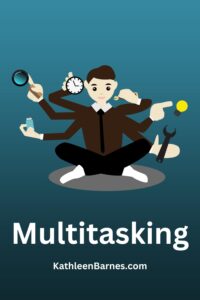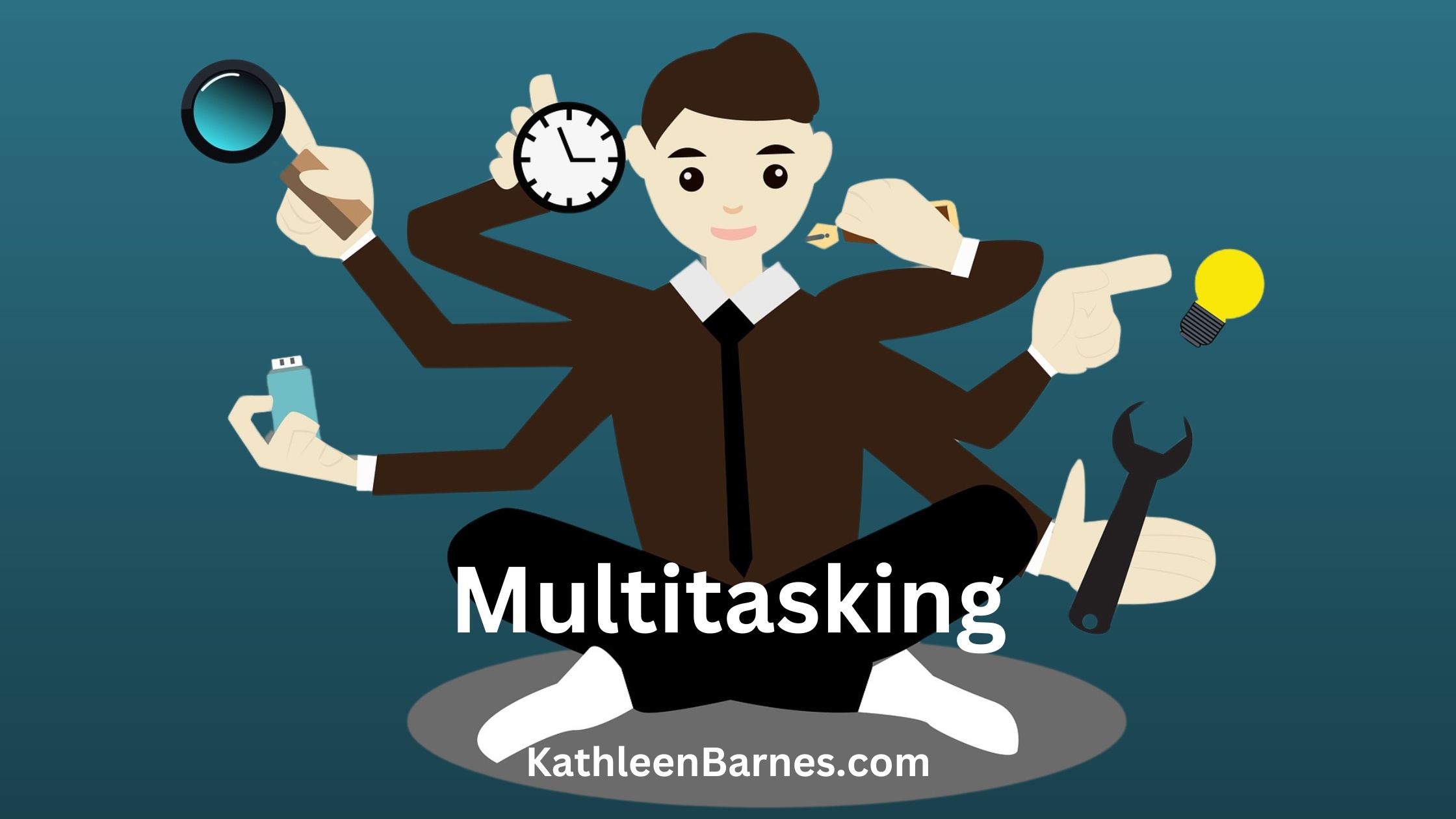 Are you a multitasker? True confession: I am an inveterate multitasker. am. I often find myself taking a weekend break, reading a book, drinking tea, perhaps texting with family members and even checking the news on TV while kind of /sort of supervising the guy painting downstairs and wondering if I answered the e-mail from a colleague. Whew!
Are you a multitasker? True confession: I am an inveterate multitasker. am. I often find myself taking a weekend break, reading a book, drinking tea, perhaps texting with family members and even checking the news on TV while kind of /sort of supervising the guy painting downstairs and wondering if I answered the e-mail from a colleague. Whew!
Does this sound familiar?
Right now, I’m sitting at my desk, writing this newsletter, juggling e-mails from my assistant my assistant about a minor technical problem that requires me to give her a verification code within a certain time frame and listening to some breaking news on my radio. I’m sure you’ve all been here.
I recently came across a presentation from Earl K. Miller, a professor of neuroscience at MIT, who has some specific admonitions about multitasking:
“It ruins productivity, causes mistakes and impedes creative thought. Many of you are probably thinking, ‘But I’m good at it!’ Sadly, that’s an illusion.”
The reality, Dr. Miller says, is that our brains aren’t designed to have multiple simultaneous thoughts. When we think we are multitasking, we are actually switching between tasks and not doing any of them very well and even leaving gaps in our perception that can have disastrous results.
Research show we make more mistakes when we multitask.
Dr. Miller looked at people who are talking on their phones while driving, regardless of hands free or not. They found that phone-using drivers missed possible hazards– and even pedestrians — because their brains were switching back and forth between the conversation and the road in front of them, so there were gaps in their perception that caused them to miss things that were really there, like pedestrians and stop lights.
Multitasking absolutely increases stress. We’ve all felt it.
Take a moment to visualize this scenario: You’re cooking dinner, stirring your favorite risotto that requires a certain amount of attention. You’re holding your crying baby, noticing your new puppy is making those “I need to go outside” signals and your boss calls with a request for some information from a recent report that resides in your laptop. Yikes!
Just thinking about it makes me feel stressed.
In fact, researchers wanting to elicit a stress response from subjects in a laboratory usually rely on a multitasking environment to get that stress response.
What they find is that the more tasks assigned to their subjects, the more errors they make.
Here are four major reasons that multitasking is bad for you and for your health:
- It compromises executive brain function. That means that the more you’re trying to do, the less you’re actually accomplishing.
- You feel chronically stressed, which can lead to a variety of serious health conditions.
- It can contribute to depression.
- It can cause memory loss.
How to stop multitasking?
It’s clearly easier to say than to do, but here are a few ideas that may resonate with you:
- Have a To Do list that starts with the most important tasks you need to accomplish each day. That said, be flexible because stuff happens.
- Schedule your time to check e-mails, preferably only a couple of times a day. We’ve all experienced what a black hole e-mail can be.
- Ditto for social media, perhaps even more so.
- Triage. What is the most important task right now? What can wait?
- Turn off your phone during your focused times. Similarly, silence your phone while you are driving.
- Complete each task (i.e answering that e-mail, making that phone call) before you start the next task.
- Take breaks between tasks.
- Know yourself. What is your most productive time of the day? Reserve that time to perform the tasks that require the most of your mental bandwidth.
- Say no. Overextending makes the multitasking stress even worse.







